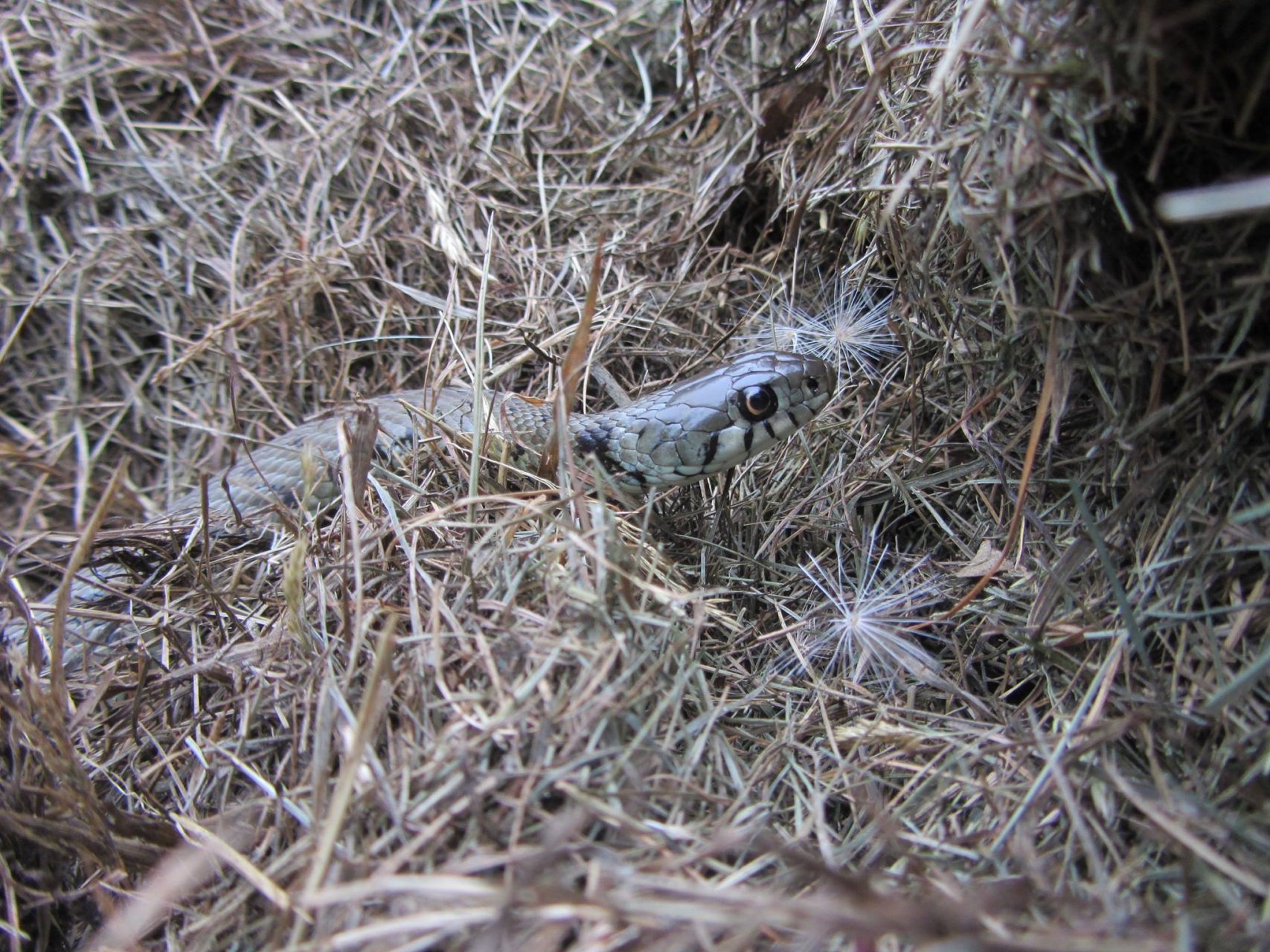Research on Jersey’s grass snakes has found that their numbers are higher than first thought, but they’re still at high risk of extinction.
The study, led by scientist Dr Rob Ward from the Durrell Institute of Conversation and Ecology (DICE), and working with Jersey’s Department of the Environment, gives some hope for the future of this protected species. The research, published in Scientific Reports, reveals that grass snakes are living at a number of nature reserves in the west and southwest of Jersey. However, Dr Ward’s research has also found that grass snake numbers are low and that the creatures are extremely difficult to find, making it challenging to monitor changes in the population or estimate numbers. And, since many snakes aren’t recorded, they could be at risk if any building development starts on a new site.
The grass snake is Jersey’s only snake and is completely harmless but is rarely seen. Reasons for its decline aren’t clear but may be linked to changes in the amount and quality of its habitat – like many species. The study is the first to give an indication of the status of Jersey’s secretive grass snake population. It comes after Dr Ward spent four years conducting research on the snakes. During the two-year period spent searching for them, he walked over 613 km of survey routes and found 43 different individuals.
The Department of the Environment will continue to work with other States of Jersey departments, landowners and land managers to make sure they have the right corridors and habitat to survive.

